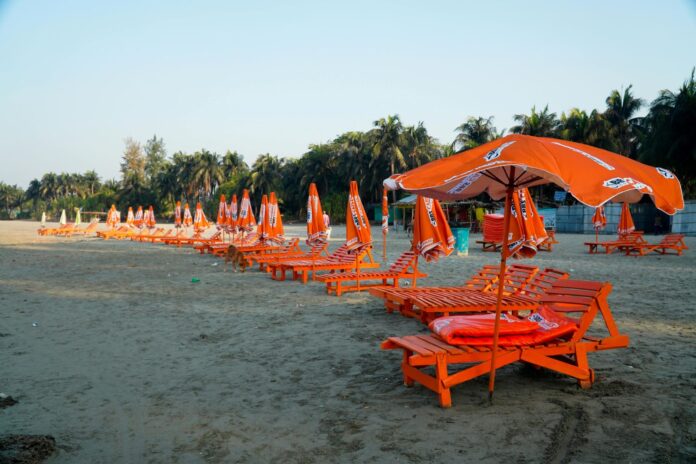Saint Martin’s Island, a pristine gem nestled in the Bay of Bengal, is facing an alarming environmental crisis. This picturesque island, renowned for its coral reefs, pristine beaches, and diverse marine life, is now under severe threat due to a combination of human activities and natural factors.
One of the most pressing issues confronting Saint Martin’s Island is the rapid increase in tourism. While tourism can boost the local economy, it also brings with it a host of environmental problems. The influx of visitors has led to increased pollution, with plastic waste littering the beaches and coral reefs. The construction of hotels and resorts has resulted in the destruction of natural habitats and the erosion of the island’s coastline. Furthermore, the noise and disturbance caused by tourists can disrupt the delicate balance of the marine ecosystem.
Another significant threat to Saint Martin’s Island is climate change. Rising sea levels pose a serious risk to the island’s existence, as it is already vulnerable to erosion and flooding. The increasing frequency and intensity of storms and cyclones further exacerbate the situation. Moreover, the warming of ocean waters can lead to coral bleaching, a phenomenon that can devastate coral reefs and the marine life that depends on them.
Overfishing is another major concern. The depletion of fish stocks can disrupt the marine food chain and have a cascading effect on the entire ecosystem. Destructive fishing practices, such as the use of dynamite and cyanide, further damage coral reefs and other marine habitats.
In addition to these threats, pollution from industrial activities and agricultural runoff can also harm the island’s environment. The discharge of untreated sewage and chemicals into the sea can contaminate water sources and harm marine life.
To address these environmental challenges, a multi-faceted approach is needed. The government must implement stricter regulations to control tourism and construction activities on the island. Sustainable tourism practices should be promoted, and efforts should be made to minimize the environmental impact of visitors.
Furthermore, measures must be taken to reduce plastic pollution and promote waste management. The use of single-use plastics should be banned, and recycling programs should be implemented. Community awareness campaigns can also play a crucial role in educating people about the importance of environmental conservation.
To mitigate the effects of climate change, the government should invest in coastal protection measures and promote sustainable development practices. Efforts should also be made to reduce greenhouse gas emissions and transition to renewable energy sources.
Overfishing can be addressed through the implementation of sustainable fishing practices, such as the establishment of marine protected areas and the regulation of fishing quotas. International cooperation is also essential to combat illegal fishing and promote responsible fishing practices.
Finally, it is crucial to strengthen environmental regulations and enforcement to ensure compliance with environmental laws. Strict penalties should be imposed on those who violate these laws, and public awareness campaigns should be conducted to promote environmental consciousness.
Saint Martin’s Island is a fragile ecosystem that requires careful protection. By taking immediate and concerted action, we can help preserve this natural wonder for future generations.








